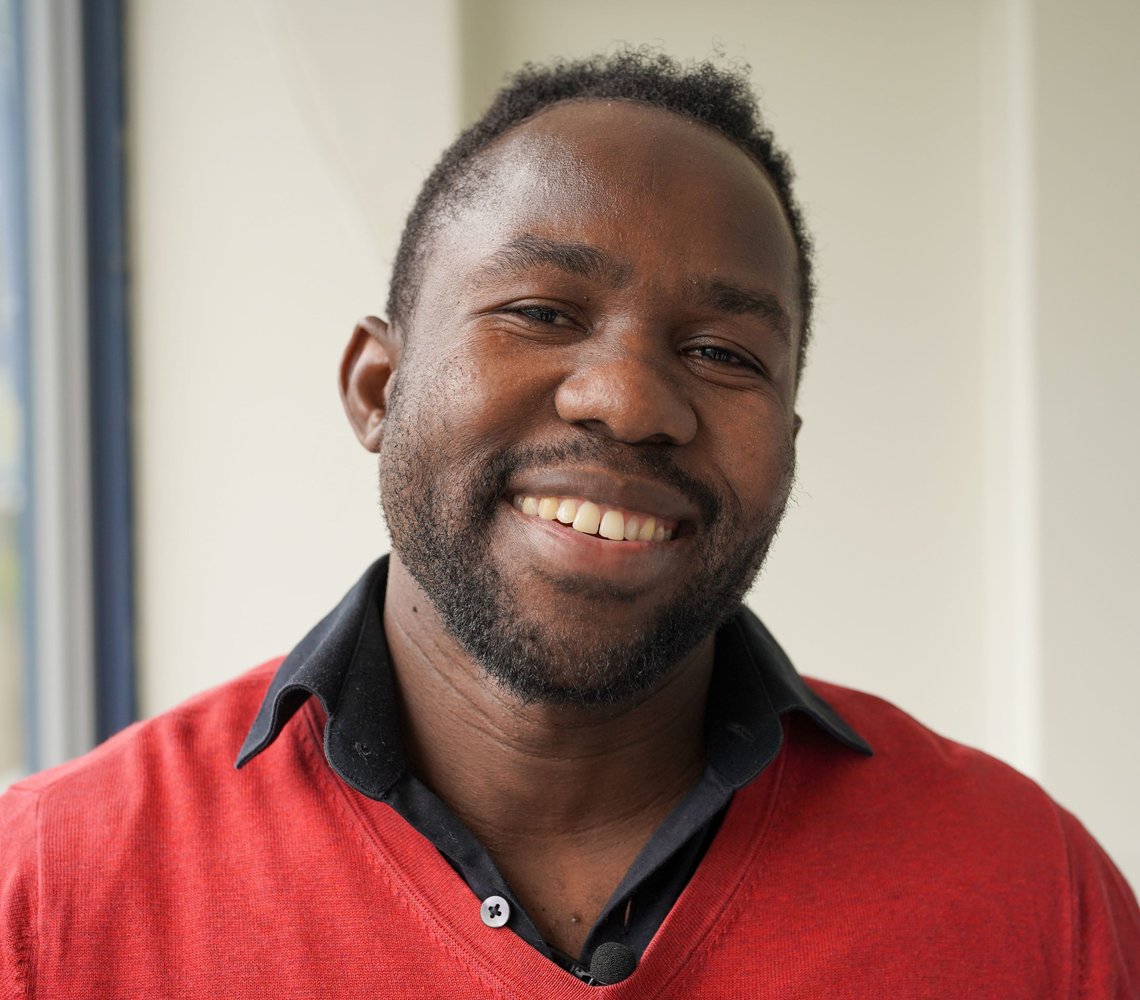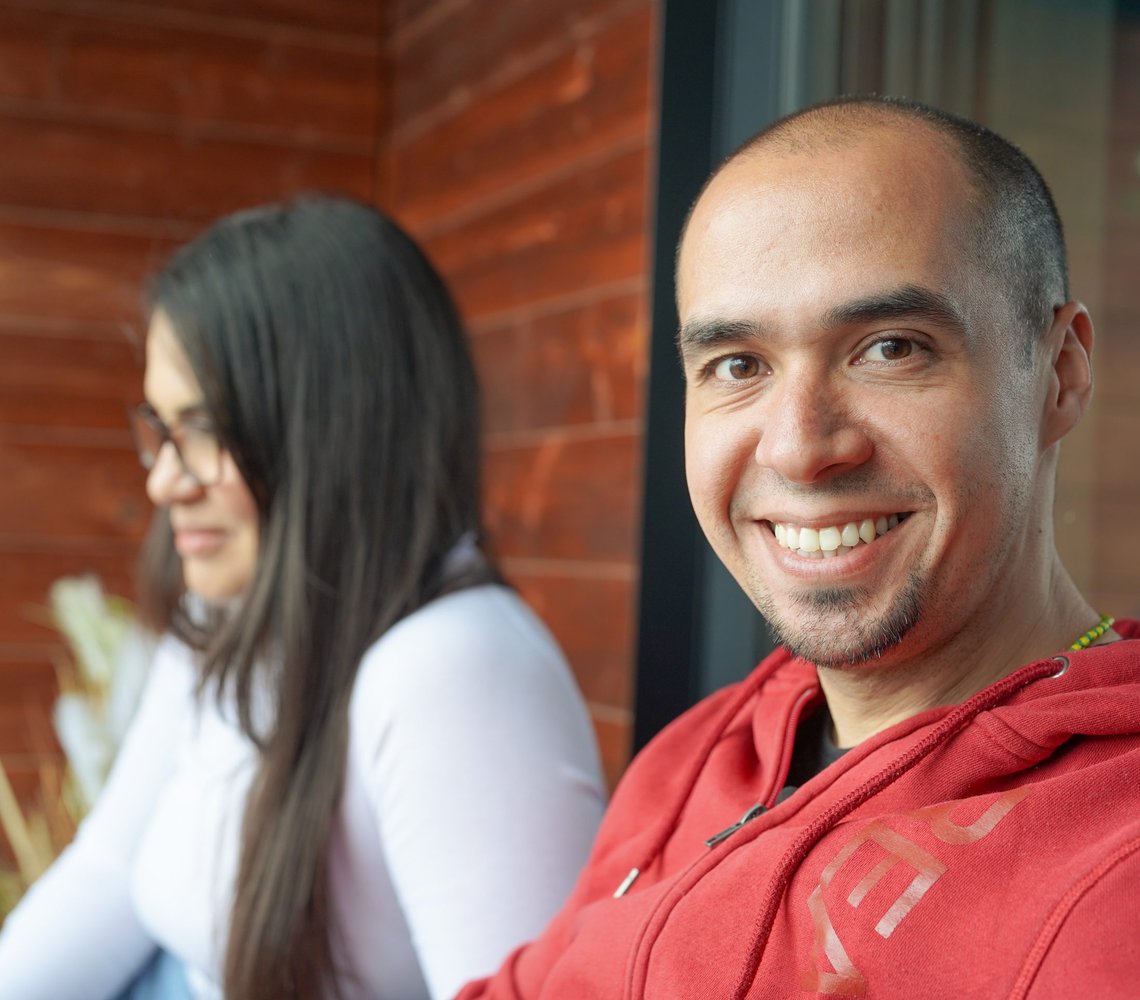Skills for Employment
Abdi’s story
Through learning the language and picking up new training and skills, Abdi rebuilt his life.

Since 2019, more than 3,700 refugees have been supported through Ingka Group’s Skills for Employment initiative, and more than 700 other business were engaged to help integrate more refugees into their workplaces.
As we believe work is a key driver for integration into society, we renew our commitment to increase the employability of an additional 3,000 refugees by the end of 2027.
Businesses can make meaningful contributions to local neighbourhoods and to society at large by working toward refugee integration and opening pathways to decent work for refugees. Together, we can prove that inclusive growth and positive social impact go hand in hand.
Through our Skills for Employement programme we provide 3-6 months of language and job training, enabling refugees to gain work experience so that they have a better chance of finding a job, either in IKEA or in othercompanies.
We’ve developed this toolkit to share our experience and lessons learned so far. We hope this toolkit inspires you to act, too.

Whether we fully understand the geopolitical reasons for refugee migration, the fact is refugees deserve support now.
We welcome them and support them.
Refugees* are people forced to flee their homes because of the risk violence, conflict, persecution or war and have crossed an international border to find safety in another country. Many of them undertake dangerous journeys and sea crossings, risking life and limb to try and reach safety. Some get stuck along the way, and some don’t survive the journey.
* The International legal definition of a refugee as per the 1951 Convention is a person who, “owing to wellfounded fear of being persecuted for reasons of race, religion, nationality, membership of a particular social group or political opinion, is outside the country of his nationality”.

These circumstances mean most refugees have few real prospects for the future and are at risk of social exclusion. Their contact with the local population is often very limited, which makes it difficult for them to learn the local language and culture. Many feel dependent and useless and, in that situation, their self-esteem plummets.
Work is key for integration
Experts are in agreement; employment is essential for long-term and successful integration in a host country. It needs to take place here and now, not just when conditions are ideal i.e. when refugees have learnt the local language, or when the population is united on the need for integration. In the end it’s very simple; with better integration comes fewer tensions in society.
Although work is key, some countries don’t allow asylum seekers and refugees to work legally, and many refugees can lack the experience required within the local labour market and working culture to get their first job in their new country. That’s where Ingka and other businesses can support them.

We place great importance on properly onboarding every new co-worker. One way we do this is through a buddy approach. A buddy is a colleague who offers guidance and practical support to help new team members settle in.
To help our teams provide caring, consistent assistance, we have developed a training programme that prepares co-workers to act as buddies for refugees joining Ingka. Below, you will find a facilitator deck designed to help you run this training in your own workplace.

A number of stores across 24 countries have been running Skills for Employment initiatives for several years. Here we share some of the valuable lessons they’ve learned.
Clear and timely communication is at the heart of a successful initiative. For example, Q&A sessions for co-workers prove to be especially helpful.
Internal acceptance of, and support for, a refugee project is essential. A well-prepared initiative, when teamed with good communication, can help bring even critical voices on board.
Depending on the scale of the initiative, appointing a project manager may be necessary. If it’s a national project that takes place in different stores, you might need a person working full-time to set up and carry out the project.
In the initial evaluation of the training for both refugees and employees, the intercultural training was considered particularly helpful and beneficial.
It’s important that responsibilities are clearly defined, both internally and with any possible partner authorities or organisations. Everyone who is involved must know what their role and responsibilities are. This is the only way to make sure everything runs smoothly.
In the questionnaires, all the participants expressed an urgent desire to improve their language skills. However, often local language courses are only funded up to a very basic level, which in our experience, is not always sufficient for day-to-day work. One idea is to find people, such as retired teachers, who are prepared to volunteer.
It’s important to set up proper onboarding for the participants as well as for the buddies, who have a crucial role in the process. Please consider sufficient time for the buddies as they are a key success factor.
Employers may encounter views and values held by refugees that are different to their own, such as women in managerial roles or the idea of doing ’women’s work’. Changing habits takes time, so have patience. Everybody needs to be aware of these differences and accept them.
Don’t forget that many refugees are dealing with a multitude of problems while attempting to work and integrate into a foreign place, including worries about family members who have been left behind and recent trauma.
Every IKEA country or store that has carried out a refugees’ skills for employment initiative has found it to be mutually enriching. It’s about meeting as equals and helping refugees become independent in their new environment. Employees and teams have said that the experience has broadened their mindset – now they feel they’re truly living the values of equality, diversity and inclusion.
Be aware about the local context and the perception of refugees. Businesses have an important role to play in changing the narrative around refugees in the community. Communication activities around the skills for employment programme can add value to the local conversation.
More than 30 million refugees were forced by conflict, persecution or natural disaster to leave their homelands. Wherever they’ve come from and for whatever reason, all refugees are people like everyone else. And they bring with them skills, talent and hope. Supporting refugees’ integration is something that everyone can get involved in, as an individual, society, government or business.
We believe more companies, big or small, have important and unique roles to play for labour integration of refugees. Companies can choose to see opportunities, not threats. Refugees provide an opportunity to bring diversity, talent, innovation and resilience into your company. Work brings human dignity to people and enable individuals to participate in social and economic life, which are crucial to build a place to call home.
We see that refugees can bring great value to business and society – if we enable them to. We support refugees because it is the right thing to do and because it makes business sense. When we developed the refugee Skills for Employment initiative, we already knew that great things are achieved when people work together toward a common goal.
That’s why we believe everyone needs to be involved. Including you.
